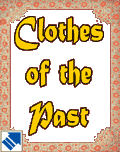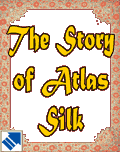|
|
|
Clothes in Uzbekistan are eclectic to say the least.
While some the older people look as though they have stepped straight
from a silk road camel caravan, many of the younger people appear to have
stepped straight out of a Moscow night club. Whatever the variation in
style, however, all agree that looking good is important and most people
get dressed up whenever they leave the house. No matter how poor a person's
economic status, they have one or two 'good' outfits for wearing to work
or social events, keeping their old clothes for wearing inside the house.
|

| 
|
| 'Dressed to go out'
| 'Uzbek girls ready for partying'
|
What people wear also depends on where they live and
there is even a difference between Khiva and Urgench. Whilst in Khiva
the population is largely made up of conservative Uzbeks, Urgench contains
many more russified Uzbeks as well as Russians and Koreans. Women in Urgench
often favour trousers, mini skirts, skimpy tops and short hairstyles.
These clothes are frowned upon by most women in Khiva, who opt for long
dresses which cover the shoulders and legs. These modest dresses can be
either western in style or follow the typical loose and flowing Uzbek
design made from atlas silk or the bold synthetic fabrics imported from
China and the Middle East. While ready-made clothes are available in the
bazaar, most women make their own dresses or have them tailor-made by
dressmakers who usually do a roaring trade.
|

|
| 'Seductive eyebrows'
|
The fashion-conscious Uzbek woman wears a stylish dress
or matching skirt and jacket along with high heels, handbag, gold jewellery
and sometimes a head scarf if she's married, although this is not as obligatory
in Khorezm as in other parts of the country. She'll also hanker after
a curvaceous figure, long hair which has a rich red henna sheen and is
worn in a bun plus well defined eyebrows which are sometimes painted to
meet in the middle. For doing the housework and relaxing at home, most
women don more traditional clothing such as a 'khalat' (a wrap-over dress
which looks rather like a dressing gown), traditional trousers and old
slippers) for outdoors.
|

|
| 'Traditional gear for men'
|
|
Khorezm men are also smartly turned-out in shirts
or polo shirts with loose trousers. Some also sport the traditional
black and white hat ('dopa') although in Khorezm this is usually
only worn by the very pious and those in mourning. At home the men
relax in a vest or sweater (depending on the weather) and the inevitable
fake brand jogging trousers.
|

|
| 'Smartly dressed Uzbek men'
|
|
|
|
|

|
| 'An umbrella is an essential accessory in the
summer sunshine'
|
Older folk tend to dress more traditionally and you
can often see grizzled old men in shaggy fur hats, striped 'chapons' (robe)
and high black boots. In Khiva women over sixty exchange their colourful
head scarves for large white silk scarves which covered their heads on
their wedding day and which will be used to wrap their body after their
demise. White is also the colour of mourning and white headscarves are
worn by widows and other women who have been bereaved within the previous
year. All the women in a house in which a close relative has died will
wear specially made clothes of white and light blue patterns. They should
not wear nice clothes for a year, and at the end of the first year of
mourning they burn their white clothes and resume the current fashions.
|

| 
| 
|
| 'Indoor clothes'
| 'Mourning women dressed in white'
| 'Clothes for relaxing'
|

| 
| 
|
| 'All kinds of fabric for sale'
| 'Just choose the colour!'
| 'Ready-made special occasion clothes'
|
|
|
|
|













